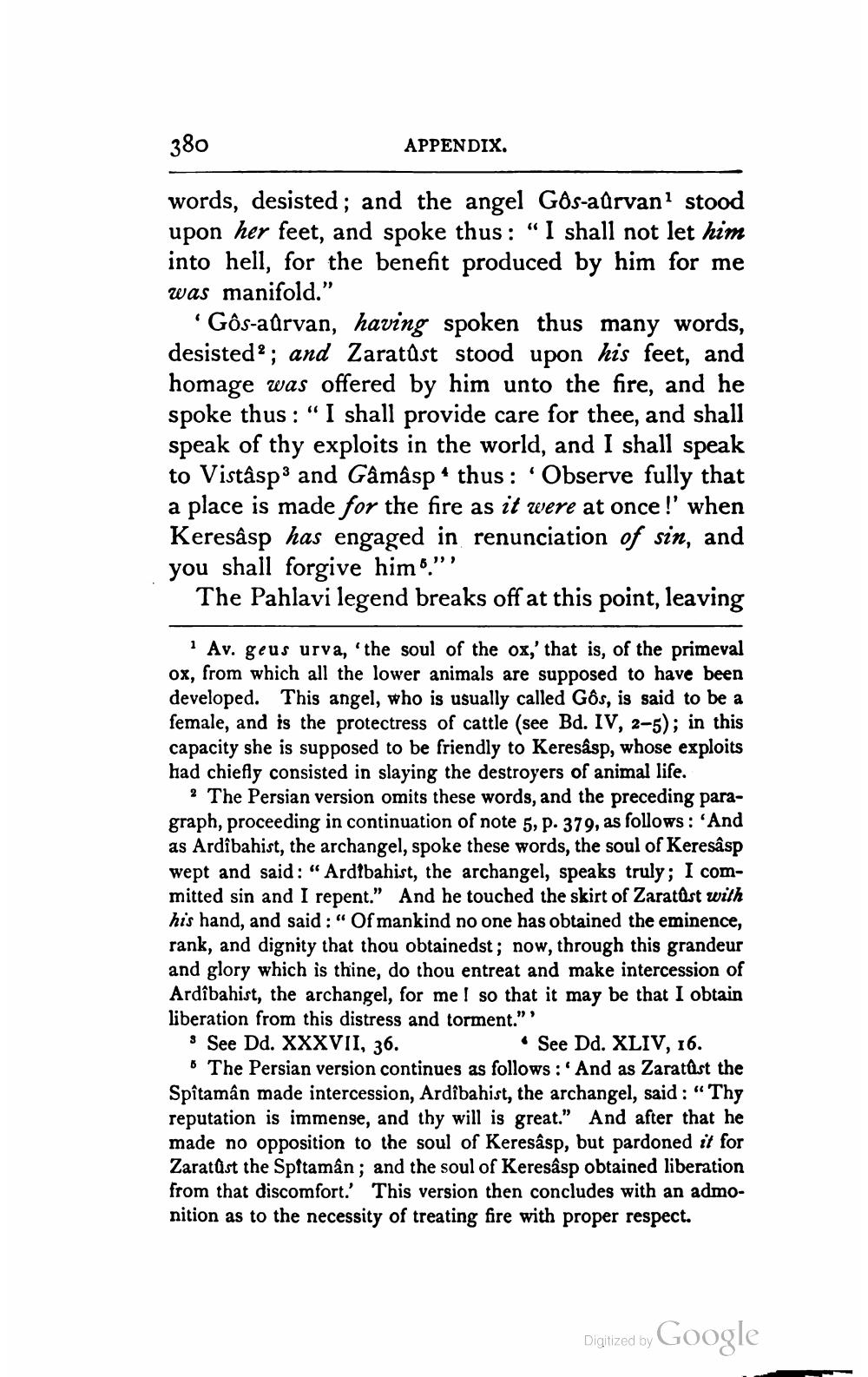________________
380
APPENDIX.
words, desisted; and the angel Gos-adrvan stood upon her feet, and spoke thus: “I shall not let him into hell, for the benefit produced by him for me was manifold."
'Gôs-adrvan, having spoken thus many words, desisted?; and Zaratūst stood upon his feet, and homage was offered by him unto the fire, and he spoke thus : " I shall provide care for thee, and shall speak of thy exploits in the world, and I shall speak to Vistâsp3 and Gâmâsp - thus : 'Observe fully that a place is made for the fire as it were at once !' when Keresåsp has engaged in renunciation of sin, and you shall forgive him.”'
The Pahlavi legend breaks off at this point, leaving
1 Av. geus urva, 'the soul of the ox,' that is, of the primeval ox, from which all the lower animals are supposed to have been developed. This angel, who is usually called Gôs, is said to be a female, and is the protectress of cattle (see Bd. IV, 2-5); in this capacity she is supposed to be friendly to Keresâsp, whose exploits had chiefly consisted in slaying the destroyers of animal life.
The Persian version omits these words, and the preceding paragraph, proceeding in continuation of note 5, P. 379, as follows: 'And as Ardîbahist, the archangel, spoke these words, the soul of Keresâsp wept and said: “Ardtbahist, the archangel, speaks truly; I committed sin and I repent." And he touched the skirt of Zaratust with his hand, and said: “Of mankind no one has obtained the eminence, rank, and dignity that thou obtainedst; now, through this grandeur and glory which is thine, do thou entreat and make intercession of Ardîbahist, the archangel, for me I so that it may be that I obtain liberation from this distress and torment." See Dd. XXXVII, 36.
See Dd. XLIV, 16. o The Persian version continues as follows: 'And as Zaratůst the Spîtaman made intercession, Ardîbahist, the archangel, said: “Thy reputation is immense, and thy will is great." And after that he made no opposition to the soul of Keresâsp, but pardoned it for Zaratust the Spitamân; and the soul of Keresâsp obtained liberation from that discomfort. This version then concludes with an admonition as to the necessity of treating fire with proper respect.
Digitized by Google




